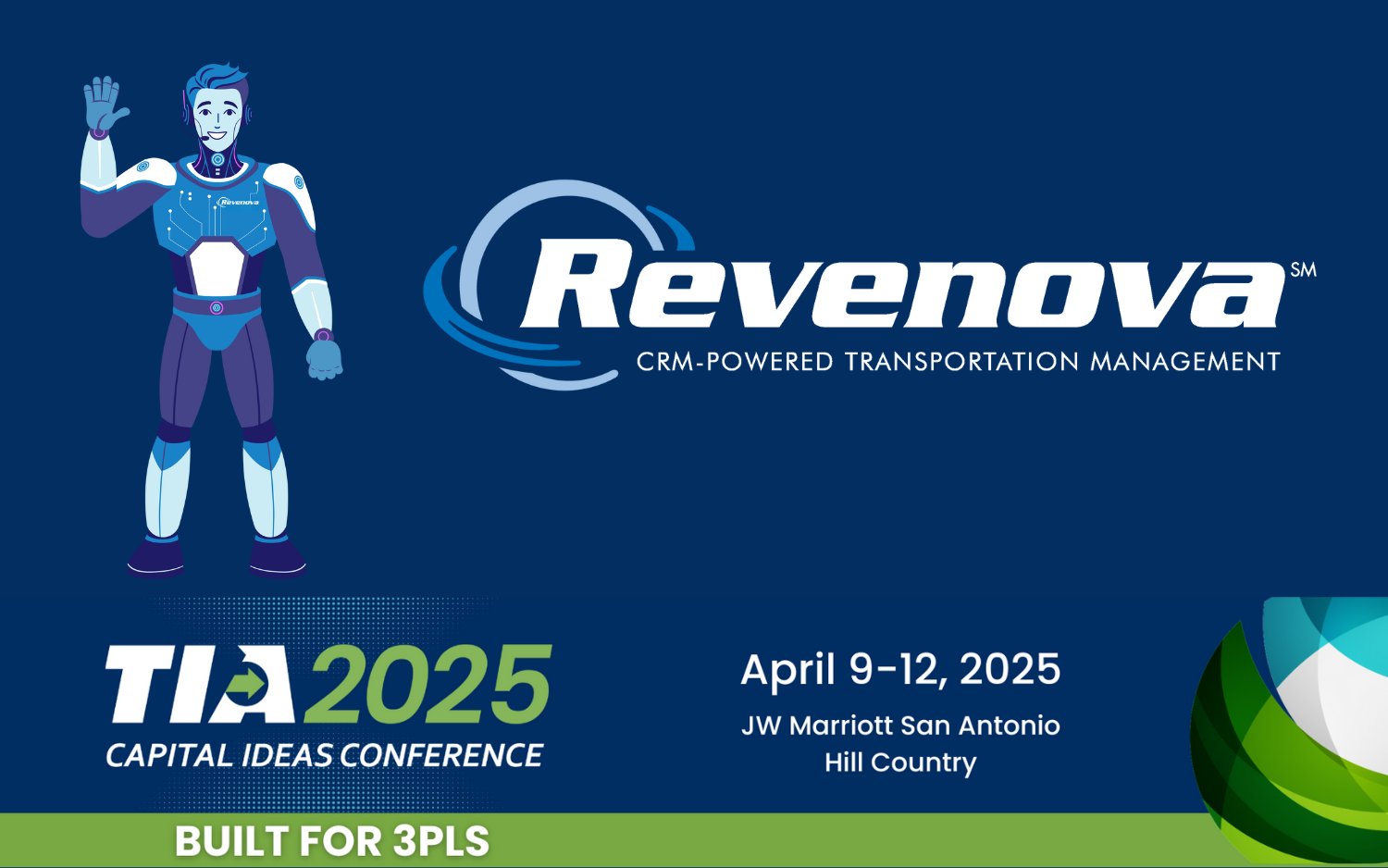
Artificial Intelligence + TMS = a Powerful Combination
Artificial intelligence (AI) continues to penetrate every aspect of the business world and transportation management is no exception to the rule. In fact, modern transportation management systems (TMS) are perfect breeding grounds for both AI, machine learning, and the new kid on the block: generative AI (Gen AI).
Gen AI picks up where AI leaves off by analyzing existing data and creating new content based on learned patterns and structures. It works in tandem with machine learning, a subset of AI that helps systems learn from data, identify patterns and make decisions with minimal human intervention.
Combined, these three technology powerhouses are changing the way we do things, picking up some of the slack that human workers would rather not deal with (or, that they can’t, as in the case of reviewing massive amounts of data to quickly develop action points based on that information) and handling other tasks.
For example, AI can be used to optimize routes, forecast demand, provide real-time tracking, automate administrative tasks, manage risk and enable predictive maintenance. It also helps enhance customer service, promotes sustainability and generates valuable data insights that companies, carriers and brokers can use to improve decision-making.
“Shipping companies can streamline operations, improve customer satisfaction, reduce costs, and achieve greater efficiency by utilizing AI technology,” says shipping company FreightCenter in 10 Ways Shipping is Smarter with AI.
Here are some of the other ways FreightCenter says AI is being used in transportation management:
Finding the best and most efficient routes for delivering goods. By analyzing data about traffic, weather, and other factors, AI algorithms can plan the routes that use the least fuel and produce the fewest emissions. This means fewer trucks on the road and less pollution in the air.
Planning how to efficiently pack goods onto trucks or ships. By optimizing the use of space, AI ensures that more items can be transported in a single trip. This reduces the number of vehicles needed and saves fuel, resulting in fewer emissions and a more sustainable shipping process.
Evaluating alternative sources of energy for transportation. It can analyze data about different types of fuels and energy sources to determine which ones are more sustainable and produce fewer emissions. This research helps shipping companies transition to cleaner fuels like electricity or biofuels, reducing their carbon footprint and making shipping more environmentally friendly.
Now, many of these functions could be handled by employees, but the amount of time it would take to work through all of the data and details would be substantially longer. Plus, wouldn’t you rather have your valuable human workforce focused on more strategic projects than just sifting through data and ferreting out patterns all day? We thought so.
“Relationships are the backbone of the transportation and logistics industry, and you can’t foster good relationships if all your team members are doing is entering data and building loads all day,” says Danielle Chaffin, Senior Solutions Engineer at Revenova. “If they can’t afford to take their eyes off of the screen for a minute, then the opportunity to form new alliances and strengthen your supply chain is basically lost.”
Putting AI to Work in Transportation Management
Revenova has jumped into the AI arena with both feet, knowing that its application would help customers—shippers, freight brokers, carriers, and others—operate even more efficient, effective, and profitable supply chains. It developed an AI persona called “Artimus,” which has natural language processing (NLP) capabilities.
 Artimus quickly takes unstructured text and converts it into data that a system can read and then put into a workflow. This is one of many ways Revenova supports its customers with AI and automation. During peak times, for example, a broker no longer has to shell out tons of overtime or ramp up extra temporary staff to handle the additional load volume. Artimus can spring into action and help you maintain business consistency without the need for additional resources.
Artimus quickly takes unstructured text and converts it into data that a system can read and then put into a workflow. This is one of many ways Revenova supports its customers with AI and automation. During peak times, for example, a broker no longer has to shell out tons of overtime or ramp up extra temporary staff to handle the additional load volume. Artimus can spring into action and help you maintain business consistency without the need for additional resources.
Artimus handles the menial, manual tasks that take away from the human parts of logistics. The artificial intelligence add-on builds loads and posts capacity from inbound emails as well as text prompts. Because Artimus is built inside Revenova TMS using AI models from OpenAI, the trained “out-of-the-box version” of Artimus understands the transportation management system and appropriate industry language.
“Artimus can take all of the information it needs about a specific load right from someone’s email inbox, effectively freeing up time for employees to spend more time working directly with customers,” says Chaffin. For example, if a load or quote request comes in from a specific customer, Artimus will process the request and build the load and quote in Revenova TMS. “Someone in the office books the carrier and it’s done—and all in a very hands-off manner.”
Build Your Own AI Agent
Revenova also uses Salesforce’s Agentforce and Einstein AI platforms to build and deploy customized AI agents and predictive models. These tools deliver trusted, extensible AI grounded in the Salesforce ecosystem, which lets users utilize customer data to create predictive and generative AI experiences that meet specific business needs; gain complete visibility over the customer experience; and solve issues faster.
“With Agentforce, we provide the components companies can use to build their own AI agents,” says Chaffin. “This is just one more way Revenova is harnessing the power of AI and sharing that power with the companies that use our TMS.”
To learn more about Revenova TMS, Request a Demo. Follow Revenova on LinkedIn, YouTube, and X for the latest updates and news about Revenova TMS, the original CRM-powered Transportation Management System.




